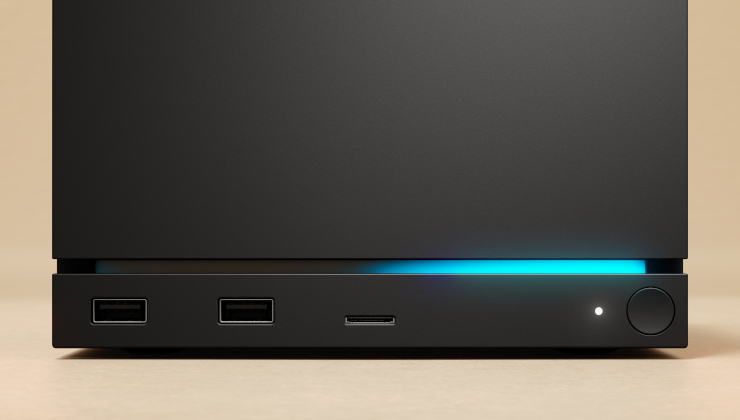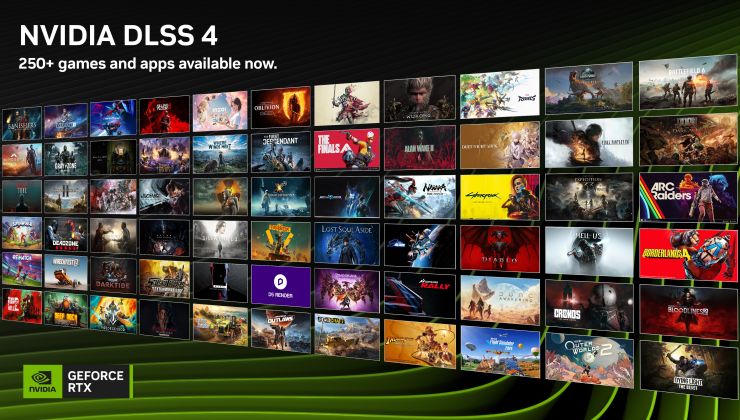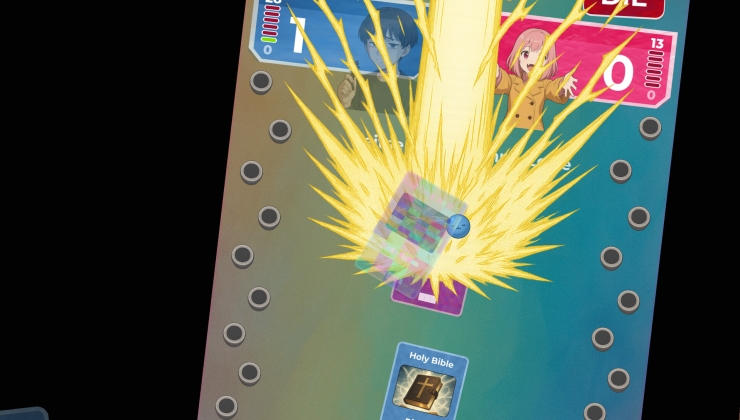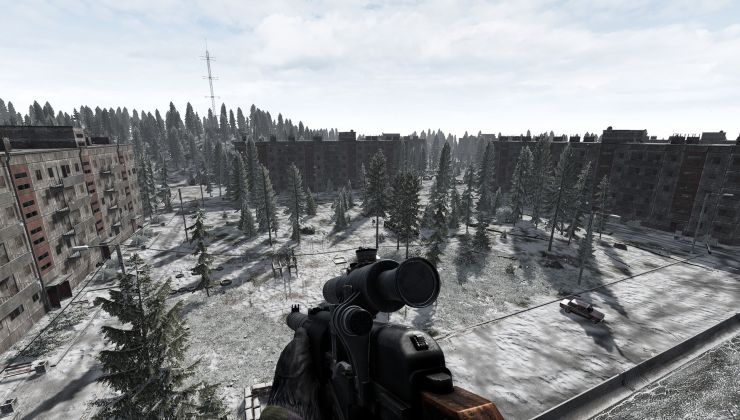OpenGL is still very much alive and kicking, with the release today of OpenGL 4.6 to further improve the API.
From the press release:
OpenGL 4.6 has officially added these into the core spec:
They also released two new extensions:
They also released a set of extensions to allow OpenGL and OpenGL ES interoperability with Vulkan and Direct3D.
You can see the full OpenGL 4.6 specifications here.
NVIDIA have also just released a new beta 381.26.11 driver which pulls in support for OpenGL 4.6. They do note that they're mainly for developers looking to experiment with GL4.6.
From the press release:
QuoteThe Khronos™ Group, an open consortium of leading hardware and software companies, announces from the SIGGRAPH 2017 Conference the immediate public availability of the OpenGL® 4.6 specification. OpenGL 4.6 integrates the functionality of numerous ARB and EXT extensions created by Khronos members AMD, Intel, and NVIDIA into core, including the capability to ingest SPIR-V™ shaders.
SPIR-V is a Khronos-defined standard intermediate language for parallel compute and graphics, which enables content creators to simplify their shader authoring and management pipelines while providing significant source shading language flexibility. OpenGL 4.6 adds support for ingesting SPIR-V shaders to the core specification, guaranteeing that SPIR-V shaders will be widely supported by OpenGL implementations.
OpenGL 4.6 has officially added these into the core spec:
- GL_ARB_gl_spirv and GL_ARB_spirv_extensions to standardize SPIR-V support for OpenGL
- GL_ARB_indirect_parameters and GL_ARB_shader_draw_parameters for reducing the CPU overhead associated with rendering batches of geometry
- GL_ARB_pipeline_statistics_query and GL_ARB_transform_feedback_overflow_query standardize OpenGL support for features available in Direct3D
- GL_ARB_texture_filter_anisotropic (based on GL_EXT_texture_filter_anisotropic) brings previously IP encumbered functionality into OpenGL to improve the visual quality of textured scenes
- GL_ARB_polygon_offset_clamp (based on GL_EXT_polygon_offset_clamp) suppresses a common visual artifact known as a “light leak” associated with rendering shadows
- GL_ARB_shader_atomic_counter_ops and GL_ARB_shader_group_vote add shader intrinsics supported by all desktop vendors to improve functionality and performance
- GL_KHR_no_error reduces driver overhead by allowing the application to indicate that it expects error-free operation so errors need not be generated
They also released two new extensions:
- GL_KHR_parallel_shader_compile allows applications to launch multiple shader compile threads to improve shader compile throughput
- WGL_ARB_create_context_no_error and GXL_ARB_create_context_no_error allow no error contexts to be created with WGL or GLX that support the GL_KHR_no_error extension
They also released a set of extensions to allow OpenGL and OpenGL ES interoperability with Vulkan and Direct3D.
You can see the full OpenGL 4.6 specifications here.
NVIDIA have also just released a new beta 381.26.11 driver which pulls in support for OpenGL 4.6. They do note that they're mainly for developers looking to experiment with GL4.6.
Some you may have missed, popular articles from the last month:
All posts need to follow our rules. Please hit the Report Flag icon on any post that breaks the rules or contains illegal / harmful content. Readers can also email us for any issues or concerns.
Hmm... I'm atm on the 381.26.08 beta driver for Steam VR on Linux, as it looks its successor versions doesn't have the needed extensions. This driver could be installed via this ppa: https://launchpad.net/%7Emamarley/+archive/ubuntu/nvidia-dev/+packages.
I wondering if this will be updated to have 381.26.11.
And if so, if Steam VR on Linux works better for me then. Atm I have quite some issues getting it up and running.
I wondering if this will be updated to have 381.26.11.
And if so, if Steam VR on Linux works better for me then. Atm I have quite some issues getting it up and running.
0 Likes
Mesa finally caught up to 4.5 and now they release this...
2 Likes
Quoting: AnxiousInfusionMesa finally caught up to 4.5 and now they release this...It have been a few months now.
2 Likes
Quoting: AnxiousInfusionMesa finally caught up to 4.5 and now they release this...Most of these extensions are marked as done by [Mesa](https://mesamatrix.net/).
- GL_ARB_indirect_parameters
- GL_ARB_shader_draw_parameters
- GL_ARB_pipeline_statistics_query
- GL_ARB_transform_feedback_overflow_query
- GL_ARB_shader_atomic_counter_ops
- GL_ARB_shader_group_vote
- GL_KHR_no_error(started)
- GL_ARB_gl_spirv(patches sent today)
That just leaves the following extensions.
- GL_ARB_spirv_extensions
- GL_ARB_texture_filter_anisotropic
- GL_ARB_polygon_offset_clamp
Last edited by sr_ls_boy on 31 Jul 2017 at 2:25 pm UTC
3 Likes
so opengl now can read spirv shaders? like using vulkan shaders and to be able to use them for opengl too? that sounds useful for feral which still create both renderers for their games.
0 Likes
GL_ARB_texture_filter_anisotropicPreviously IP encumbered? Is it now free?
1 Likes
Quoting: edoso opengl now can read spirv shaders? like using vulkan shaders and to be able to use them for opengl too? that sounds useful for feral which still create both renderers for their games.That would mean targeting OpenGL 4.6, which would limit compatibility to devices and drivers compatible with OpenGL 4.6. This would be probably the same set that can handle Vulkan. Would it be any better than supporting only Vulkan? I don't think so.
SPIR-V in OpenGL is useful for those who don't want to use Vulkan (prefer higher level API) but would like to take advantage of SPIR-V.
1 Likes
This is quite nice, but possibly more important is the [Vulkan Portability Initiative](https://www.khronos.org/blog/khronos-announces-the-vulkan-portability-initiative?mc_cid=9339bc74e7&mc_eid=f758c0cf49)
The aim here is to identify the subset of Vulkan that can map directly to D3D12 and Metal, provide open-source libraries to effect the mapping and cross-compilers for spir-v to the D3D12/Metal intermediate shader languages.
That would possibly offer developers a single API ( Vulkan ) to target almost every platform at minimal performance cost.
The question would then be whether that is good enough for the main AAA developers ( it certainly would be for smaller teams ), and whether the parties that control D3D12 and Metal attempt to sabotage the initiative...
The aim here is to identify the subset of Vulkan that can map directly to D3D12 and Metal, provide open-source libraries to effect the mapping and cross-compilers for spir-v to the D3D12/Metal intermediate shader languages.
That would possibly offer developers a single API ( Vulkan ) to target almost every platform at minimal performance cost.
The question would then be whether that is good enough for the main AAA developers ( it certainly would be for smaller teams ), and whether the parties that control D3D12 and Metal attempt to sabotage the initiative...
5 Likes
Quoting: etonbearsThis is quite nice, but possibly more important is the [Vulkan Portability Initiative](https://www.khronos.org/blog/khronos-announces-the-vulkan-portability-initiative?mc_cid=9339bc74e7&mc_eid=f758c0cf49)That does sound interesting. I wish it well.
The aim here is to identify the subset of Vulkan that can map directly to D3D12 and Metal, provide open-source libraries to effect the mapping and cross-compilers for spir-v to the D3D12/Metal intermediate shader languages.
That would possibly offer developers a single API ( Vulkan ) to target almost every platform at minimal performance cost.
The question would then be whether that is good enough for the main AAA developers ( it certainly would be for smaller teams ), and whether the parties that control D3D12 and Metal attempt to sabotage the initiative...
0 Likes
Quoting: edoso opengl now can read spirv shaders? like using vulkan shaders and to be able to use them for opengl too?Yes and no. The source form for Vulkan shaders is GLSL too (*), or rather a variant of GLSL that is still essentially GLSL 4.5. You give that source to glslang, which compiles it into SPIR-V bytecode.
(*) At least usually. The SPIR-V specs are open, and you can theoretically build a compiler that creates SPIR-V bytecode out of something else. But the usual way is to just feed it GLSL.
Quoting: JajcusThat would mean targeting OpenGL 4.6, which would limit compatibility to devices and drivers compatible with OpenGL 4.6.Like Vulkan, it would also cut off macOS.
But, unlike Vulkan, GL_ARB_gl_spirv would be pretty easy to provide optionally. I.e. the GL doesn't support GL_ARB_gl_spirv, you just feed it GLSL source as normal. The GL does support GL_ARB_gl_spirv, you feed it the precompiled bytecode instead, for a potential speed-boost during shader-loading.
If that speed-boost is worth it, however, I wouldn't know. It would only be noticable during the initial loading of the shader, and possibly only once because of driver-level shader caches.
Whether the shaders are then interchangebly between their OpenGL and Vulkan renderer as well, that depends on whether their pipeline for both renderers is essentially the same, with the same bindings in the same slots.
Also depends on how Feral does their porting: if they automatically translate Direct3D shader bytecode to SPIR-V bytecode for Vulkan and GLSL source for OpenGL, they are probably already set up to be compatible.
What I'm hoping, though, is that maybe this will help unify shader compilation across driver boundaries. Currectly, the issue is that some drivers might accept some GLSL source, while another might reject it or even interpret it differently. If now all drivers need to load SPIR-V anyway, and the GLSL to SPIR-V compiler is open, they could just simply their compilation step by ripping out their old compiler, plug in glslang and have all these differences disappear. Even retroactively for devices that don't support OpenGL 4.6.
This would mean that game and engine creators could be more secure in what GLSL code is correct, since if glslang eats and it creates the correct SPIR-V out of it, that then should really work on all devices, even if they don't have the resources to test on every single device.
This is the important thing that SPIR-V brings: stability, not necessarily a speed-up.
5 Likes
In my case this drivers works with ppsspp normally (ppsspp shows opengl 4.6)
View video on youtube.com
^_^
Last edited by mrdeathjr on 31 Jul 2017 at 7:48 pm UTC
View video on youtube.com
^_^
Last edited by mrdeathjr on 31 Jul 2017 at 7:48 pm UTC
1 Likes
In other news jozef kucia add detection of one opengl 4.6 extension in wine git
From: Józef Kucia <[email protected]>^_^
Subject: [PATCH] wined3d: Update ARB_pipeline_statistics_query extension detection.
Message-Id: <[email protected]>
Date: Mon, 31 Jul 2017 23:31:17 +0200
ARB_pipeline_statistics_query is included in OpenGL 4.6.
Signed-off-by: Józef Kucia <[email protected]>
---
dlls/wined3d/directx.c | 2 ++
1 file changed, 2 insertions(+)
diff --git a/dlls/wined3d/directx.c b/dlls/wined3d/directx.c
index 9707f81a3b..919b997e2e 100644
--- a/dlls/wined3d/directx.c
+++ b/dlls/wined3d/directx.c
@@ -3898,6 +3898,8 @@ static BOOL wined3d_adapter_init_gl_caps(struct wined3d_adapter *adapter,
{ARB_CLIP_CONTROL, MAKEDWORD_VERSION(4, 5)},
{ARB_DERIVATIVE_CONTROL, MAKEDWORD_VERSION(4, 5)},
+
+ {ARB_PIPELINE_STATISTICS_QUERY, MAKEDWORD_VERSION(4, 6)},
};
struct wined3d_driver_info *driver_info = &adapter->driver_info;
const char *gl_vendor_str, *gl_renderer_str, *gl_version_str;
--
2.13.0
1 Likes
Quoting: ShmerlThis suggest the answer is no. Nivida owns the patent.GL_ARB_texture_filter_anisotropicPreviously IP encumbered? Is it now free?
https://www.google.com/patents/US5651104
Another patent own by Intel lapsed in December.
https://www.google.com/patents/US6816167
1 Likes
Quoting: sr_ls_boyThis suggest the answer is no. Nivida owns the patent.How is it the newer patent expired before the older one?
https://www.google.com/patents/US5651104
Another patent own by Intel lapsed in December.
https://www.google.com/patents/US6816167
Last edited by Shmerl on 1 Aug 2017 at 7:14 pm UTC
0 Likes
Quoting: ShmerlI guess someone forgot to do clever redrafting/extension tricks.Quoting: sr_ls_boyThis suggest the answer is no. Nivida owns the patent.How is it the newer patent expired before the older one?
https://www.google.com/patents/US5651104
Another patent own by Intel lapsed in December.
https://www.google.com/patents/US6816167
Last edited by Purple Library Guy on 1 Aug 2017 at 9:53 pm UTC
1 Likes
Quoting: ShmerlHow is it the newer patent expired before the older one?I for one have no idea which patent is the one holding Mesa up. I was hoping you knew.
0 Likes
See https://www.khronos.org/files/ip-disclosures/opengl/
0 Likes
That Nvidia patent lists these dates:
If I understand correctly, Khronos only includes patent-free extensions in the versioned OpenGL specification.
Last edited by Shmerl on 2 Aug 2017 at 4:00 am UTC
Publication date Jul 22, 1997I think the term is 20 years since the filing date (that would be Apr 25, 2015). But now it's even 20 since publication date too. I suppose for some weird reason they were counting it from the publication date, and it expired just last month. So Mesa can implement it now without a problem.
Filing date Apr 25, 1995
Priority date Apr 25, 1995
If I understand correctly, Khronos only includes patent-free extensions in the versioned OpenGL specification.
Last edited by Shmerl on 2 Aug 2017 at 4:00 am UTC
0 Likes
I missed this part (pretty nice of them to mention Mesa):
"OpenGL 4.6 will be the first OpenGL release where conformant open source implementations based on the Mesa project will be deliverable in a reasonable timeframe after release. The open sourcing of the OpenGL conformance test suite and ongoing work between Khronos and X.org will also allow for non-vendor led open source implementations to achieve conformance in the near future," said David Airlie, senior principal engineer at Red Hat, and developer on Mesa/X.org projects.
0 Likes
Quoting: ShmerlIf I understand correctly, Khronos only includes patent-free extensions in the versioned OpenGL specification.No. Khronos operate an IP framework, the essence of which is that Khronos members agree not to assert any patents they hold against other members implementing a Khronos specification. I'm not sure how legally strong that provision is.
No mention is made concerning implementation of Khronos specifications by non-members, or what happens if non-members hold patents that might interfere with specifications - although one would assume Khronos then use alternatives where possible.
So the situation still seems a little unclear, although there is evident goodwill towards open implementations.
0 Likes










 How to setup OpenMW for modern Morrowind on Linux / SteamOS and Steam Deck
How to setup OpenMW for modern Morrowind on Linux / SteamOS and Steam Deck How to install Hollow Knight: Silksong mods on Linux, SteamOS and Steam Deck
How to install Hollow Knight: Silksong mods on Linux, SteamOS and Steam Deck